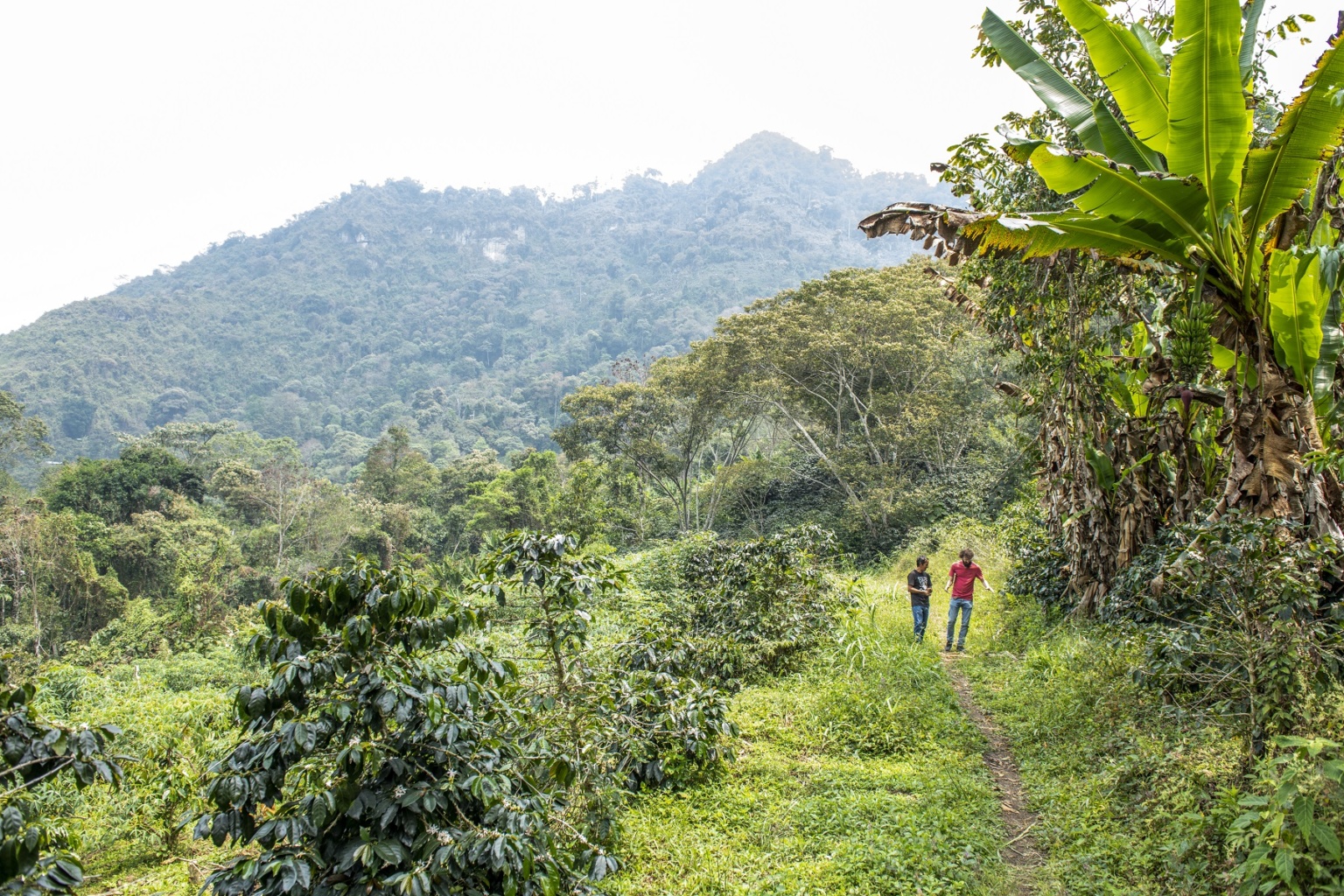
Fair Trade as the basis for coporate social responsibility
Looking for more sustainable business practices? More and more businesses are committed to doing their bit for people and the planet. The UN's Sustainable Development Goals (SDGs) confirm that fair trade is an important path to a more sustainable world. Here you can read how Oxfam Fair Trade helps you run a sustainable business or organisation.
Looking for more sustainable business practices? More and more businesses are committed to doing their bit for people and the planet. The UN’s Sustainable Development Goals (SDGs) confirm that fair trade is an important path to a more sustainable world. Here you can read how Oxfam Fair Trade helps you run a sustainable business or organisation.
Always the fair solution
Oxfam Fair Trade strijdt al langer voor eerlijke handel. Een correcte prijs voor de producent is een belangrijk principe van eerlijke handel. Maar daar houdt het niet op. Oxfam ijvert voor een rechtvaardig handelssysteem met eerlijke regels voor alle spelers in de handelsketen. Hierdoor krijgen onze klanten het best mogelijke product, gemaakt met respect voor mens en planeet.
The European Due Diligence law requires companies to monitor and assess the impact of the entire value chain. This should prevent or limit any negative impact of human rights and environmental activities. Oxfam Fair Trade has been investing in direct trading partners for many years. This represents a great asset as a supplier.
The highest quality for our customers
Our goal is to have 100% organic and fair products by 2030. No more chemical additives and a focus on natural agriculture. In 2022 more than 65% of our range is certified organic, compared to 50 % last year.
We monitor and improve the quality of our products every single day. Using our own quality controls and our suppliers’ quality scores, we try to go above and beyond the expectations and regulations.
A fair price for the producer and quality for the consumer, that’s what we’re all about.
Klaas Ramakers, coordinator at VIERNULVIER café
Everything for the planet
Agro-ecological farming methods are part of the fair trade philosophy. Small-scale cooperatives increase biodiversity by planting native trees and bushes. This crop diversification purifies the air, nourishes the soil and protects plants from the impact of the climate crisis.
By 2030, we aim for a 30% reduction in our emissions compared to 2021 by reducing emissions and also making climate contributions to partners by supporting CO² capture projects. In doing so, we move away from the term ‘CO2-positive’ because it favours the offset market. In addition, we reduce our waste by, for example, recycled or plant-based packaging.
What do we mean by ‘offsetting’?
The offset market works like this: because it is impossible for a company to emit ‘zero’ CO2 emissions, it invests via ‘offsets’ (a kind of financial compensation) in a project that either absorbs CO2 (for example by planting trees) or reduces it (for example by building green energy facilities to replace fossil energy).
These projects can be certified for execution and these certificates (offsets) can then be sold. However, this market is criticized. There are many cases where purchased credits do not guarantee absorption or reduction of CO2, for example because they are sold twice, are not long-term or would have taken place anyway without the investment via offsets. In some cases they also harm the local population or cause more emissions elsewhere.
Loyal trade partners
We conduct fair trade with our trade partners. In practice this means that we pay a fair price for the work and the products they supply. This is always supplemented with a fair trade premium for social and environmental projects. We pay an organic premium for our organic products to support the farmers in this climate-friendly effort.
And we even go a step further for cocoa. The cocoa farmers receive a living income premium on top of the fair trade price and premium. Studies show that the cocoa farmers in the Ivory Coast can’t cover their costs without it.
Fair trade is about more than money. It’s also about social equality and equal opportunities. Our long-term relationship with partners enables us to support specific projects. Read about our support for equal opportunities for women.
Recognition for impact on communities
The independent B Lab wants to encourage companies to do business sustainably. They screen companies for different areas of impact: community, customers, environment, governance and employees. With a sufficient score a company obtains B Corp (Benefit Corporation) certification. Does a B Corp score in the highest 5% on any of the impact areas? Then B Lab awards them with the title ‘Best for the World’.
The B Corp certification is currently the most credible and challenging assessment for sustainability in the business world at the global level. After obtaining our B Corp certification last year, we are now among the best 5% B Corps in the world for communities. We also encourage other organisations to take climate action. By choosing Oxfam Fair Trade you’re already making a clear statement: your organisation opts for sustainable business.
Always the fairest option?
With Oxfam, you know you’ve found a match. Contact us, we’re happy to listen to how we can be partners.